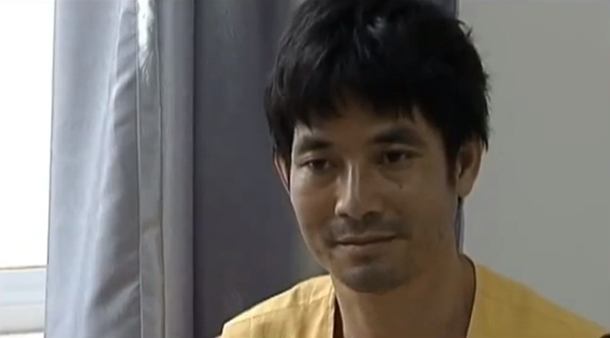A Chinese court has sentenced Naw Kham along with three co-defendants to death in the first instance on Tuesday afternoon, ending more than month of uncertainty over the fate of the notorious Burmese Golden Triangle militia leader, although an appeal could still be lodged.
The rulings by the Intermediate People’s Court of Kunming, in the capital of the China’s southwestern Yunnan Province bordering the Golden Triangle, do not come as a surprise after Naw Kham and five of his associates pleaded guilty on Sept. 21 to charges of murder, kidnapping, drug smuggling and ship hijacking, when their three-day trial closed one day ahead of schedule.
Two other defendants were not sentenced to death—one received a death sentenced suspended for two years, which are usually commuted to life imprisonment, while the other was sentenced to eight years in prison. All six defendants said in court that they would appeal, which could lead to a reduction in their sentences.
That a sentence was imminent was not first announced by court officials but instead by Tian Huqing, deputy head of the provincial Information Office and Communist Party Propaganda Committee, in a press conference on Monday.
Naw Kham is accused of masterminding the kidnapping and murder of 13 Chinese sailors on the Mekong River on Oct. 5 last year after they allegedly refused to pay protection money. The subsequent public outcry in China led to the establishment of joint patrols of the riparian countries—Laos, Thailand and Burma—under Chinese leadership.
The Chinese Ministry of Public Security also set up an investigative small group that has been widely praised in local media for capturing Naw Kham in Laos on April 25 and his associates in Shan State, Burma, during the course of the spring. Naw Kham was extradited from Laos to China on May 10.
The ethnic Shan was born in 1969 and grew to prominence working his way up under the auspices of Khun Sa, the notorious head of the now defunct Mong Tai Army (MTA). According to a member of the Chinese investigative group, Naw Kham has been commanding a small militia of 100 men profiteering on the drugs trade and kidnapping for a decade.
The owner of one of the two ships raided by Naw Kham last year told The Irrawaddy last month that he has serious doubts about the veracity of the official account. He Xilun, who lost his brother and sister-in-law in the attack, said he did not doubt that Naw Kham is responsible for the murders and demanded the death penalty for all six defendants.
He and other members of the victims’ families filed a civil lawsuit demanding compensation in August. Naw Kham said during the trial hearing in September that he was willing to pay 30 million Thai baht (US $975,000) in compensation, according to court reports.
Last week, speculation about an imminent verdict was fueled by a visit to the court venue in Kunming by Zhou Yongkang, the member of the Chinese Communist Party Politburo Standing Committee in charge of law enforcement.
Zhou, who also visited the headquarters of the Mekong patrols mission in Guanlei, congratulated the investigative team and expressed condolences for investigators who lost their lives in the pursuit of the infamous bandit.
“I hope the judiciary will adhere to reality, evidence and the law as a yardstick to deliver a good verdict in accordance with the law,” Zhou was quoted by Yunnan Info Daily. He called on officials to make sure that the “iron-clad case” should “withstand the test of the law, history and the people to safeguard justice, protect the rights and interests of the people and defend national dignity.”
Even if the death sentences are confirmed in the second instance, they first have to be reviewed by the Supreme People’s Court in the capital Beijing before being carried out. China does not publish figures on how many people it executes each year, but estimates by Amnesty International rank the world’s second-largest economy as its most zealous executioner.
“This is a milestone in China punishing foreign forces for harming Chinese people,” the editor-in-chief of China’s leading nationalist daily Global Times wrote on his microblog as a first reaction to the verdict. “As China gets stronger, the price of hurting Chinese people abroad gets higher and higher. No one should take their chances anymore.”

















